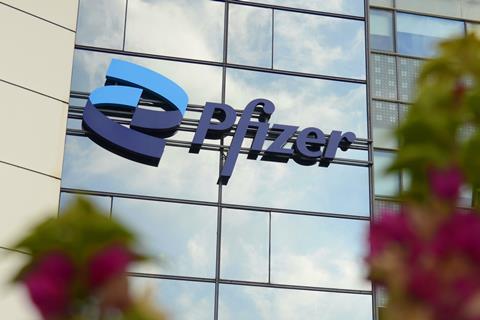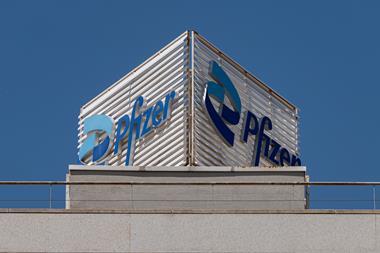Pfizer and Novo Nordisk have locked horns in a bidding war over Metsera – a US-based biotech in the process of developing new hormone-mimicking weight loss treatments originally spun out of Imperial College London, UK.
In late September, Pfizer made a fairly straightforward proposal to buy Metsera, offering just under $5 billion in cash immediately, plus over $2 billion in additional payments based on performance milestones for Metsera’s drug pipeline. Metsera agreed to that deal.

But then, on 30 October, Novo Nordisk made an unsolicited counteroffer – more cash up front, and with similar performance-related additions, adding up to a total of $9 billion. The terms of Metsera and Pfizer’s agreement allow Metsera to consider alternative offers if they are deemed ‘superior’, as well as renegotiating terms with Pfizer.
Both Pfizer and Novo have upped their offers to around $10 billion. Metsera has said it sees Novo’s as the superior deal, which would allow it to break off its arrangement with Pfizer. In the meantime, Pfizer has filed two lawsuits to try and block Novo’s advances. One, requesting a temporary restraining order to prevent Metsera terminating its agreed deal with Pfizer, has been denied by a judge on the basis that the ongoing process is generating significant additional value for Metsera’s shareholders.
Pfizer’s other lawsuit asserts that Novo is intending to ‘capture and kill’ a potential competitor to its existing drugs, before Metsera gains backing from one of America’s biggest pharma companies, and as such is anticompetitive. Metsera has dismissed such arguments as ‘nonsense’, but they do raise questions about aspects competition regulators at the Federal Trade Commission (FTC) may consider if Novo emerges the successful bidder.
Under the Trump administration, the FTC has taken a much lighter-touch approach to regulating mergers than it had during Joe Biden’s presidency. However, President Trump has also made re-shoring pharmaceutical production and championing domestic industry a major priority, which could count against Denmark’s Novo.
The FTC had already cleared Pfizer’s deal on 31 October – a week ahead of the statutory deadline. The regulator has also reportedly written to Novo and Metsera’s lawyers, expressing concerns that the structure of Novo’s offer ‘may violate’ competition law (it includes a slightly unusual mechanism for paying Metsera’s shareholders immediately upon signing of the deal, rather than at formal closure after regulatory approval). Novo says it is in dialogue with the FTC and is confident its offer structure complies with the law.
Whichever way the deal eventually goes, leaders at Eli Lilly will no doubt be watching carefully as Lilly looks to take advantage of Novo’s struggles and consolidate its position as the emerging leader in supply of metabolic hormone weight loss drugs.

















No comments yet